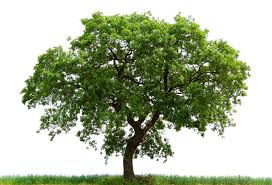记忆方法
1. soak => oak => 湿透的橡树,因为下了一整天的雨,整个橡树林就浸泡在雨水中。
2. 橡树,(又称栎树或柞树),壳斗科植物的泛称。
3. 奥克兰:奥克兰(Oakland),位于美国西海岸的加利福尼亚州,是州内第四大城市,地处旧金山海湾地区中心,也是全美第六大都市区“旧金山—奥克兰”地区的心脏。西临旧金山湾,与旧金山市隔海相望。兴建于1936年的“奥克兰海湾大桥”(亦称跨湾大桥)连接着两市。“奥克兰”一词是英文“橡树之地”(Oakland)的音译。这里原是旧金山湾东部沿岸的一片美丽的橡树林,城市由此而得名,连市徽都是一棵橡树。
4. 大名鼎鼎的java语言在诞生初期叫做oak,后来才更名为Java,是一种可以撰写跨平台应用软件的面向对象的程序设计语言。取名也许源于橡木广泛用于装潢用材和制作家具,在于其优良的材质性能。
5. 奥克兰国际机场:Oakland International Airport(美国)
6. 橡树资本(Oaktree Capital)
7. 橡树岭(Oak Ridge):一译“奥克里季”。美国田纳西州东部坎伯兰山区新兴城市。第二次世界大战中在此修建了最早的铀分离工厂及有关科研、实验机构。美国投到日本广岛、长崎的原子弹即在此研制。橡树岭国家实验室(Oak Ridge National Laboratory)是美国能源部所属的一个大型国家实验室,成立于1943年,最初是作为美国曼哈顿计划的一部分,以生产和分离铀和钚为主要目的建造的,原称克林顿实验室。
2. 橡树,(又称栎树或柞树),壳斗科植物的泛称。
3. 奥克兰:奥克兰(Oakland),位于美国西海岸的加利福尼亚州,是州内第四大城市,地处旧金山海湾地区中心,也是全美第六大都市区“旧金山—奥克兰”地区的心脏。西临旧金山湾,与旧金山市隔海相望。兴建于1936年的“奥克兰海湾大桥”(亦称跨湾大桥)连接着两市。“奥克兰”一词是英文“橡树之地”(Oakland)的音译。这里原是旧金山湾东部沿岸的一片美丽的橡树林,城市由此而得名,连市徽都是一棵橡树。
4. 大名鼎鼎的java语言在诞生初期叫做oak,后来才更名为Java,是一种可以撰写跨平台应用软件的面向对象的程序设计语言。取名也许源于橡木广泛用于装潢用材和制作家具,在于其优良的材质性能。
5. 奥克兰国际机场:Oakland International Airport(美国)
6. 橡树资本(Oaktree Capital)
7. 橡树岭(Oak Ridge):一译“奥克里季”。美国田纳西州东部坎伯兰山区新兴城市。第二次世界大战中在此修建了最早的铀分离工厂及有关科研、实验机构。美国投到日本广岛、长崎的原子弹即在此研制。橡树岭国家实验室(Oak Ridge National Laboratory)是美国能源部所属的一个大型国家实验室,成立于1943年,最初是作为美国曼哈顿计划的一部分,以生产和分离铀和钚为主要目的建造的,原称克林顿实验室。
中文词源
oak 橡树
来自古英语ac,橡树。
英语词源
- oak
-
oak: [OE] Oak is an ancient Germanic tree-name, shared by German (eiche), Dutch (eik), Swedish (ek), and Danish (eg). These point back to a common Germanic ancestor *aiks. There is no conclusive evidence of any related forms outside Germanic, however, although similarities have been noted with Greek aigílops, a term for a sort of oak tree, and Latin aesculus ‘oak sacred to Jupiter’.
Despite its passing similarity, acorn is not etymologically related. The oak was one of the commonest trees in the ancient European forests, and many terms that started out as names for it became generalized to simply ‘tree’: English tree, for instance, comes from an Indo-European ancestor that probably originally meant ‘oak’.
- oak (n.)
- Old English ac "oak tree," from Proto-Germanic *aiks (cognates: Old Norse eik, Old Saxon and Old Frisian ek, Middle Dutch eike, Dutch eik, Old High German eih, German Eiche), of uncertain origin with no certain cognates outside Germanic.
The usual Indo-European base for "oak" (*deru-) has become Modern English tree (n.); likewise in Greek and Celtic words for "oak" are from the Indo-European root for "tree," probably reflecting the importance of the oak to ancient Indo-Europeans. The Old Norse form was eik, but as there were no oaks in Iceland the word came to be used there for "tree" in general. Used in Biblical translations to render Hebrew elah (probably usually "terebinth tree") and four other words.
权威例句
- 1. The wind was bouncing the branches of the big oak trees.
- 一棵棵高大橡树的枝条随风摇摆。
- 2. He was a huge man, built like an oak tree.
- 他是个大块头,结实得像棵橡树。
- 3. Cartons of Chinese food were arrayed on a large oak table.
- 在一张宽大的橡树桌上摆放着一盒盒中式食品。
- 4. The rooms have a baronial feel, with oak paneling and leather sofas.
- 橡木制镶板和皮沙发使房间看起来既豪华气派又古色古香。
- 5. Five cows graze serenely around a massive oak.
- 5头奶牛在一棵大橡树旁悠闲自在地啃着青草。

